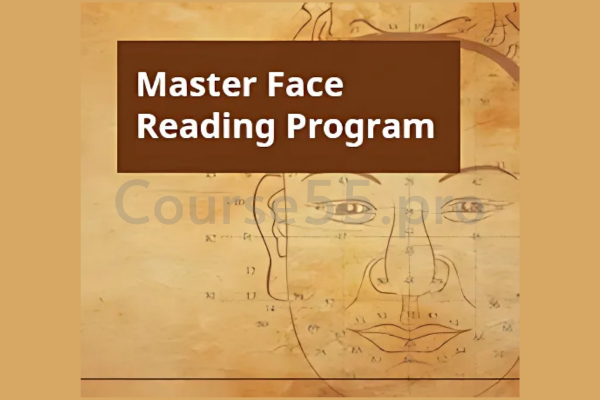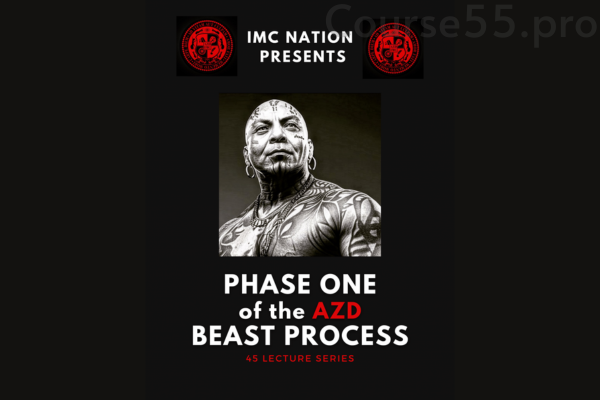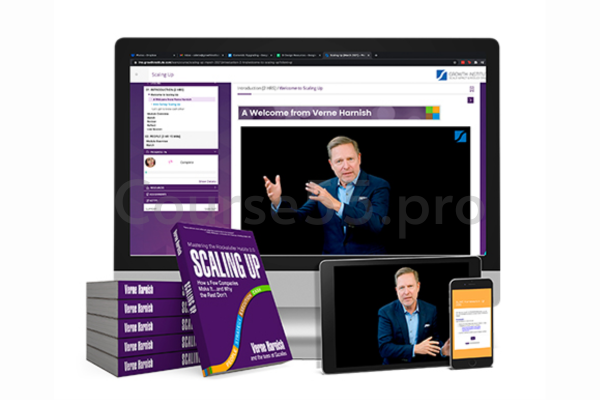-
×
 Momentum Options Trading Course By Eric Jellerson
1 × $272.00
Momentum Options Trading Course By Eric Jellerson
1 × $272.00 -
×
 Complete Course Library (7 Courses Bundle) By Click Minded
1 × $419.00
Complete Course Library (7 Courses Bundle) By Click Minded
1 × $419.00 -
×
 Master Face Reading Program By Lillian Pearl Bridges
1 × $544.00
Master Face Reading Program By Lillian Pearl Bridges
1 × $544.00 -
×
 Phase One Bundle By IMC Base One
1 × $311.00
Phase One Bundle By IMC Base One
1 × $311.00 -
×
 The Manifestation Collective Certification (SEMESTER 1) By Kimberley Wenya
1 × $311.00
The Manifestation Collective Certification (SEMESTER 1) By Kimberley Wenya
1 × $311.00 -
×
 Synchronicity Jul USA 2020 + Manual By John Demartini
1 × $233.00
Synchronicity Jul USA 2020 + Manual By John Demartini
1 × $233.00 -
×
 The Entire 7-Set Systems Health Care Video Series By Stephen Gangemi
1 × $544.00
The Entire 7-Set Systems Health Care Video Series By Stephen Gangemi
1 × $544.00
Path to Agreement Final By Bob Proctor
$101.00
Download Path to Agreement Final By Bob Proctor, check content proof here:

The Road to Consensus: Bob Proctor’s Last Analysis
Numerous approaches and strategies have frequently been used to record the trip through the changing sales landscape. Renowned motivational speaker and personal development expert Bob Proctor offers a ground-breaking viewpoint in his course “Path to Agreement Final.” Our conventional view of selling is altered by this program, which redefines it as a cooperative activity that fosters mutual gain rather than just a transaction.
Instead of encouraging rivalry, Proctor sheds light on a strategy that aims for win-win results, which is crucial in the linked world of today. In order to provide insights for those who want to become experts at reaching agreements in sales and other fields, this article aims to go deeply into the key ideas and tactics covered in the course.
Recognizing Conventional Sales Techniques
Traditional sales techniques can frequently feel like a battlefield. In an effort to overcome the buyer’s objections, salespeople use aggressive techniques and treat the features of their products like weapons. An atmosphere of mistrust, transactional coldness, and eventually discontent is fostered by this zero-sum thinking. One can observe how both sides plot to win, frequently at the price of the other’s interests, by equating this traditional approach with a game of chess. A typical salesperson, for example, would see negotiating as an adversarial process in which the customer loses and the salesperson wins.
The Transition to Cooperation
Proctor’s strategy promotes a radical break from this hostile frame of mind. Instead of a chess match, think of the sales process as a dance where both partners must move in sync for an enjoyable experience. This alignment favors open dialogue and collaborative engagement, where the salesperson guides the buyer toward a shared agreement. It’s about crafting a narrative in which both parties find validity and satisfaction.
- Key Takeaways:
- Conventional sales frequently come across as combative and competitive.
- Proctor’s approach promotes a collaboration mindset.
- Highlights collective triumphs, much like a skillfully performed dance.
Advantages of a Team-Based Approach
Making the shift from conflict to cooperation has several advantages. By creating an atmosphere where both sides feel appreciated and understood, sellers have a higher chance of:
- Increased Customer Satisfaction: Customers are more likely to be happy with their purchases when they feel involved in the process.
- Repeat Business: Happy consumers are more likely to come back, which fosters enduring connections as opposed to one-time deals.
- Referrals: Contented customers frequently tell others about their satisfying experiences, which attracts new customers.
Take, for example, a business that offers software solutions. Instead of promoting a one-size-fits-all product, they can customize their offerings to the unique needs of the client by having an open discussion. This customization not only demonstrates value but also nurtures a sense of partnership that enhances trust and loyalty.
Understanding Key Sales Concepts
The emphasis on grasping fundamental sales ideas is another noteworthy feature of Proctor’s course. The training establishes the groundwork for achieving significant agreements by giving participants a framework for persuasive communication.
Using Communication to Persuade
Knowing one’s goods and services is only one aspect of effective selling; communication is essential. The subtleties of storytelling in sales presentations, according to Proctor, might mean the difference between a successful deal and a lost chance. Salespeople can establish an emotional connection with their prospects by using this narrative-driven technique.
- Essential Communication Skills:
- Active Listening: Paying close attention to the buyer’s worries in order to understand their needs.
- Empathy: Establishing connection with the buyer requires displaying sincere concern for their circumstance.
- Clarity: Misunderstandings are avoided through succinct and clear communication.
By honing these skills, individuals can align their sales strategies with Proctor’s philosophy, creating an environment attuned to cooperative negotiation.
The Role of Psychology in Selling
Additionally, Proctor’s course delves into the psychological aspects of selling. Recognizing the underlying emotions and motivations of buyers can dramatically shift the dynamics of a sales conversation. For instance, understanding that a buyer’s reluctance might stem from fear rather than a lack of interest can lead to empathetic responses that bridge those gaps.
- Psychological Insights:
- Fear of Loss: Buyers are often motivated by the fear of missing out (FOMO).
- Reciprocity Principle: People are more likely to engage if they feel they have received something of value first.
Salespeople are transformed from transactional agents to trusted advisors navigating the intricate terrain of buyer psychology thanks to this behavioral expertise.
Techniques for Putting the Course Principles into Practice
Deliberate practice and a dedication to continuous personal improvement are necessary for putting the “Path to Agreement Final” concepts into practice. Bob Proctor provides a route for development and change rather than merely dispensing advice.
Doable Actions to Promote Consensus
The following are doable actions to apply Proctor’s lessons to regular sales procedures:
- Establish Clear Intentions: Specify what constitutes a successful agreement prior to any interactions.
- Develop a Relationship: Take the time to get to know potential customers and earn their trust.
- Have an Active Conversation: Encourage candid conversations regarding one another’s requirements, difficulties, and goals.
- Create Value: Demonstrate how your offering can actually help the customer with an issue.
By consistently applying these methods, one can foster an environment ripe for collaboration and shared success.
Measuring Success
To understand the impact of these strategies, it’s crucial to measure outcomes. Here’s a framework for assessing the effectiveness of the transformative sales approach:
| Metric | Measurement Approach |
| Customer Satisfaction | Post-sale surveys and feedback loops |
| Repeat Purchase Rate | Analyze purchase behavior over time |
| Referral Rates | Track incoming business from existing clients |
Monitoring these indicators can show a definite return on investment and offer insight into how well the collaborative agreement process is working.
In conclusion, sales’ future
The usefulness of conventional sales techniques is being questioned more and more in the modern marketplace. Bob Proctor’s “Path to Agreement Final” is a novel idea that encourages cooperation over conflict, empathy over hostility, and partnership over rivalry. Adopting this strategy could lead to better results as well as the development of enduring, meaningful relationships as individuals and corporations negotiate the challenges of contemporary sales. We can rethink what it means to sell and welcome a future in which agreements are the organic result of mutual understanding and collaboration by putting shared success first. Embracing these principles can significantly enhance one’s sales effectiveness and ensure a more harmonious, productive interaction across the board.

Frequently Asked Questions:
Business Model Innovation:
Embrace the concept of a legitimate business! Our strategy revolves around organizing group buys where participants collectively share the costs. The pooled funds are used to purchase popular courses, which we then offer to individuals with limited financial resources. While the authors of these courses might have concerns, our clients appreciate the affordability and accessibility we provide.
The Legal Landscape:
The legality of our activities is a gray area. Although we don’t have explicit permission from the course authors to resell the material, there’s a technical nuance involved. The course authors did not outline specific restrictions on resale when the courses were purchased. This legal nuance presents both an opportunity for us and a benefit for those seeking affordable access.
Quality Assurance: Addressing the Core Issue
When it comes to quality, purchasing a course directly from the sale page ensures that all materials and resources are identical to those obtained through traditional channels.
However, we set ourselves apart by offering more than just personal research and resale. It’s important to understand that we are not the official providers of these courses, which means that certain premium services are not included in our offering:
- There are no scheduled coaching calls or sessions with the author.
- Access to the author’s private Facebook group or web portal is not available.
- Membership in the author’s private forum is not included.
- There is no direct email support from the author or their team.
We operate independently with the aim of making courses more affordable by excluding the additional services offered through official channels. We greatly appreciate your understanding of our unique approach.
Be the first to review “Path to Agreement Final By Bob Proctor” Cancel reply
You must be logged in to post a review.














Reviews
There are no reviews yet.